Omega-3 and the dog gut microbiome
- Omega-3 fatty acids significantly improve your dog's gut microbiome balance, leading to better digestion, reduced inflammation, and enhanced overall health.
- EPA and DHA, the two most beneficial omega-3 fatty acids for dogs, offer different yet complementary benefits for gut health, with research indicating that they can reduce inflammatory markers by up to 30%.
- Dogs with balanced gut microbiomes show improved joint mobility, better skin and coat quality, and reduced anxiety behaviours through the gut-brain connection.
- Modern commercial dog food typically lacks sufficient omega-3 content, creating a need for supplementation to reach the optimal EPA:DHA ratio of 3:2.
- JP's Natural Pet Supplements offers specially formulated omega-3 supplement for dogs with high EPA (540mg) and DHA (360mg) levels to support optimal canine gut health.
Your dog's gut health might be the missing link to resolving those persistent health issues you've been battling. The gut microbiome—that complex community of bacteria living in your dog's digestive tract—influences everything from immune function to brain health. When this bacterial ecosystem falls out of balance, problems emerge throughout your dog's body. Omega-3 fatty acids represent one of the most potent natural tools for restoring this critical balance.
How Omega-3s Transform Your Dog's Gut Health
The connection between omega-3s and gut health isn't just theoretical—it's backed by compelling research. These essential fatty acids work by creating an environment that allows beneficial bacteria to thrive while keeping harmful microbes in check. This microbial balance is crucial because your dog's gut contains approximately 70% of their immune system. When omega-3s like EPA and DHA enter the digestive system, they modify the intestinal environment to favour beneficial bacterial species that produce short-chain fatty acids (SCFAs), which further enhance gut barrier function and reduce inflammation.
Omega-3 for dogs gut microbiome
What makes omega-3 supplementation particularly valuable is that most dogs don't get nearly enough from their regular diet. Commercial dog foods, even premium varieties, typically contain excessive amounts of omega-6 fatty acids (which can promote inflammation) and insufficient amounts of omega-3s. This imbalance can gradually disrupt the gut microbiome, leading to subtle but progressive health deterioration that affects multiple body systems.
The Hidden Connection Between Gut Bacteria and Dog Health Problems
Many chronic canine health issues that seem unrelated actually share a common origin: gut dysbiosis. This condition occurs when harmful bacteria outnumber beneficial ones in the digestive tract. The consequences extend far beyond occasional digestive upset. Research has linked poor gut microbiome health to joint inflammation, skin allergies, immune dysfunction, and even behavioural problems in dogs.
Dog gut microbiome

The gut-brain axis—a bidirectional communication system between the digestive tract and the central nervous system—explains why gut health impacts your dog's mood and behaviour. Studies have shown that dogs with healthier gut microbiomes exhibit reduced anxiety, improved focus, and better stress resilience. This connection helps explain why some dogs experience significant behavioural improvements after starting Omega-3 supplementation.
Common Signs Your Dog Has Poor Gut Health
Your dog might be silently suffering from a gut microbiome imbalance without obvious digestive symptoms. Watch for these telltale signs: recurring skin issues or excessive itching, joint stiffness that comes and goes, unusual fatigue or lethargy, frequent ear infections, or unexplained behavioural changes. Many dogs also exhibit subtle digestive signs, such as occasional soft stools, increased gas, or fluctuations in appetite. These symptoms often develop gradually, making them easy to miss or dismiss as a regular part of ageing. .
The early warning signs often manifest as inconsistency, with days of normal function followed by unexplained flare-ups. This pattern occurs because the gut microbiome exists in a constant state of flux, with beneficial bacteria struggling to maintain dominance over problematic species. When the balance tips toward harmful bacteria, inflammation increases system-wide, triggering these seemingly random clusters of symptoms.
Why Modern Dog Diets Lack Essential Gut Support
The evolution of commercial pet food has created a nutritional gap for modern dogs. Wild canids naturally consume omega-3-rich foods like fish and certain plant materials, along with probiotic bacteria from their prey's digestive contents. Today's kibble, while nutritionally complete on paper, often lacks these living components that support microbiome health.
Processed dog foods undergo high-temperature manufacturing that destroys many beneficial compounds. Even more concerning, preservatives added to extend shelf life can actively disrupt the balance of gut bacteria. The excessive omega-6 to omega-3 ratio in most commercial diets (often 15:1 or higher) creates a pro-inflammatory environment in the gut. For optimal health, dogs need this ratio closer to 5:1 or even 3:1, which is why targeted supplementation becomes essential.
Supplementing with high-quality omega-3s, such as those found in JP's Natural Pet Supplements, helps correct this imbalance. Their specially formulated omega-3 supplement provides 540mg of EPA and 360mg of DHA—concentrations specifically calibrated to support canine gut health and reduce system-wide inflammation.
The Dangerous Cycle of Inflammation in Canine Bodies
Chronic low-grade inflammation represents perhaps the most damaging consequence of poor gut health. When gut barriers become compromised—a condition vets call "leaky gut"—bacterial components and undigested food particles can escape into the bloodstream. This triggers an immune response that creates inflammation not just in the digestive tract but throughout the entire body.
This inflammatory cascade affects joints, skin, brain tissue, and vital organs. What begins as occasional digestive discomfort can eventually contribute to severe inflammatory conditions like arthritis, inflammatory bowel disease, and even cognitive decline. Omega-3 fatty acids help break this cycle by strengthening intestinal barriers, reducing the production of inflammatory compounds, and directly influencing the gut microbiome's composition toward anti-inflammatory bacterial species.
Essential Omega-3 Fatty Acids That Power Dog Gut Health
Not all omega-3 fatty acids deliver the same benefits for your dog's gut microbiome. The three primary omega-3s—ALA (alpha-linolenic acid), EPA (eicosapentaenoic acid), and DHA (docosahexaenoic acid)—interact differently with the digestive system. While ALA from plant sources, such as flaxseed, has some value, dogs can only convert a tiny percentage (less than 10%) into the more bioactive EPA and DHA forms their bodies truly need.
JP's Dog Omega-3 Supplement
Marine-derived EPA and DHA offer direct, powerful effects on the gut environment. These fatty acids become incorporated into cell membranes throughout the digestive tract, enhancing membrane fluidity and function. This structural improvement helps maintain the integrity of the intestinal barrier, preventing the leakage of toxins and undigested food particles into the bloodstream—a key factor in reducing whole-body inflammation.
EPA vs. DHA: Which Benefits Your Dog More?
While often discussed together, EPA and DHA serve distinct roles in canine gut health. EPA excels at managing inflammatory responses by competing with pro-inflammatory omega-6 fatty acids. When gut inflammation threatens to disrupt the microbiome balance, EPA helps dampen this response by reducing the production of inflammatory compounds called eicosanoids. This makes EPA particularly valuable for dogs with active inflammatory conditions, such as colitis or leaky gut syndrome.
DHA, meanwhile, provides more structural support to cell membranes throughout the digestive tract and supports the nervous system component of gut function. The enteric nervous system—sometimes referred to as the "second brain"—controls gut motility and secretion. DHA helps maintain the health of these neural pathways, improving digestive efficiency and the gut-brain communication that regulates appetite and digestive processes.
The ideal supplement provides both fatty acids in the optimal ratio of approximately 3:2 EPA to DHA, similar to the proportions found in JP's Natural Pet Supplements omega-3 formula, which contains 540mg EPA and 360mg DHA. This balance ensures comprehensive support for all aspects of gut microbiome health.
How Omega-3s Directly Influence Gut Bacteria Composition
Recent research reveals that omega-3 fatty acids actually reshape the microbial community in your dog's gut. Studies show that consistent omega-3 supplementation increases beneficial bacterial populations, such as Bifidobacterium and Lactobacillus, while reducing problematic species, including certain Clostridium strains. This selective pressure occurs because omega-3s create environmental conditions that favour beneficial bacteria that can metabolise these fatty acids.
When beneficial bacteria metabolise omega-3s, they produce compounds called specialised pro-resolving mediators (SPMs) that further reduce inflammation and promote tissue repair in the intestinal lining. This creates a positive feedback loop: healthier gut tissues support more beneficial bacteria, which in turn produce more anti-inflammatory compounds. The result is a progressively improving gut environment that benefits the entire body.
The Right Daily Dosage Based on Your Dog's Size
Omega-3 Dosage Guidelines for Dogs
Small dogs (under 20 lbs): 250-500 mg combined EPA/DHA daily
Medium dogs (20-60 lbs): 500-1000 mg combined EPA/DHA daily
Large dogs (over 60 lbs): 1000-1500 mg combined EPA/DHA daily
Giant breeds (over 100 lbs): 1500-2000 mg combined EPA/DHA daily
Note: These are general guidelines. Dogs with inflammatory conditions may benefit from doses at the higher end of these ranges.
The therapeutic window for omega-3 supplementation is quite wide, making it safe for most dogs. However, starting with a lower dose and gradually increasing to the target amount helps prevent the rare digestive upset that can occur with sudden introduction. Dogs with existing gut inflammation may initially need doses at the higher end of the recommended range to overcome the inflammatory cycle before reducing to a maintenance level.
5 Major Health Improvements from Better Gut Microbiome
1. Reduced Joint Pain and Mobility Issues
The connection between gut health and joint function becomes clearer as research advances. Many joint problems stem from systemic inflammation that originates in an unhealthy gut microbiome. When harmful bacteria dominate the digestive tract, they release endotoxins that trigger inflammatory responses throughout the body, including the joints. Omega-3 fatty acids disrupt this cycle by promoting beneficial bacteria that produce anti-inflammatory compounds instead.
In a study of dogs with osteoarthritis, those receiving high-dose EPA and DHA supplements demonstrated a 30% greater improvement in mobility scores compared to the control groups. The effect was particularly notable in ageing dogs, where the omega-3 supplementation seemed to slow the progression of joint deterioration. Owners typically report seeing improvement in their dog's willingness to climb stairs or jump into cars within 3 to 6 weeks of starting a high-quality omega-3 supplement.
2. Enhanced Skin and Coat Quality
Skin problems often reflect internal gut health issues. The gut-skin axis refers to the mechanism by which inflammatory signals from an unhealthy microbiome trigger immune responses, resulting in symptoms such as itching, redness, or recurring hot spots. Omega-3 fatty acids work from the inside out, first by reducing gut inflammation that triggers these immune responses, and then by incorporating into skin cell membranes to improve barrier function.
Beyond reducing inflammation, omega-3s regulate sebum production—the natural oils that keep your dog's skin and coat healthy. Dogs receiving adequate EPA and DHA typically develop fuller, more lustrous coats with less dander and reduced shedding. The effect becomes visible within one complete coat growth cycle, usually 6-8 weeks for most breeds.
Owner Testimonial: "After just two months of adding an omega-3 supplement to my Labrador's diet, her constant scratching and dandruff disappeared completely. Her coat became so shiny that people at the dog park kept asking if I was using a special shampoo. It's amazing to think that fixing her gut health with omega-3s could make such a visible difference." — Sarah M., pet parent to 6-year-old Labrador.
The skin benefits also extend to seasonal allergies. Many dogs with pollen sensitivities experience less severe reactions when their gut microbiome is balanced with omega-3 support. This occurs because a healthier gut produces fewer inflammatory cytokines, raising the threshold at which environmental allergens trigger visible symptoms.
3. Improved Digestive Function and Nutrient Absorption
The most direct benefit of omega-3s for gut health is improved digestive efficiency. EPA and DHA reduce intestinal inflammation, allowing the beneficial bacteria that aid digestion to flourish. These bacteria produce enzymes that help break down food more completely, enhancing nutrient extraction from each meal. Many owners notice more consistent stool quality and reduced gas production within days of starting supplementation.
Additionally, omega-3s improve the structure and function of the microvilli—tiny projections in the intestinal lining that increase surface area for nutrient absorption. When these structures function optimally, your dog can extract more nutrition from the same amount of food. This efficiency can be particularly beneficial for senior dogs or those with compromised digestive systems who struggle to maintain weight and muscle mass.
4. Stronger Immune Response Against Infections
With approximately 70% of immune tissue located in and around the gut, the health of the microbiome has a direct influence on immune function. Omega-3 fatty acids support immunity through multiple mechanisms: they enhance the production of secretory IgA (the first-line antibody defence in mucous membranes), promote diversity among beneficial bacteria that train the immune system, and modulate inflammatory responses to prevent overreaction to harmless stimuli. Dogs with omega-3-rich diets typically experience fewer respiratory infections and recover more quickly when illness does occur.
5. Better Brain Function and Mood Regulation
The gut-brain axis represents one of the most fascinating aspects of microbiome research. The bacteria in your dog's gut produce neurotransmitters and other signalling molecules that directly influence brain function. In fact, over 90% of the body's serotonin—a key mood-regulating neurotransmitter—is produced in the gut. Omega-3s, particularly DHA, support this communication system by enhancing the function of neural cell membranes and reducing neuroinflammation.
Clinical studies demonstrate that dogs receiving adequate omega-3 supplementation show improved cognitive function, particularly in ageing dogs. Owners report better focus during training, reduced anxiety in stressful situations, and improved sleep quality. In a landmark study examining the effects of DHA on Labrador Retrievers, researchers found that 87% of dogs showed measurable reductions in cortisol levels and lower heart rates in anxiety-inducing situations after eight weeks of supplementation.
Fish Oil vs. Krill Oil vs. Algae Oil: Best Sources for Dogs
Not all omega-3 sources provide equal benefits for your dog's gut microbiome. Fish oil remains the most common and well-studied option, particularly oil derived from cold-water fish like anchovies, sardines, and mackerel. These small fish accumulate less environmental toxins than larger predatory species while providing excellent EPA and DHA concentrations. High-quality fish oil supplements undergo molecular distillation to remove potential contaminants while preserving the integrity of fatty acids.
Krill oil offers a compelling alternative with unique advantages for gut health. The omega-3s in krill oil are bound to phospholipids rather than triglycerides, which may increase their absorption in the digestive tract. Additionally, krill oil naturally contains astaxanthin, a powerful antioxidant that helps prevent fatty acid oxidation and provides additional anti-inflammatory benefits. Research suggests krill oil may improve the ratio of beneficial to harmful bacteria more efficiently than some fish oil products.
Algae oil represents the newest option in the canine omega-3 market, offering significant sustainability advantages as it's derived directly from the marine microorganisms that produce these fatty acids in the first place. While algae oil typically contains more DHA than EPA, newer cultivation methods are producing more balanced profiles of these omega-3 fatty acids. For dogs with fish allergies or owners concerned about the impact on the marine ecosystem, algae oil provides a viable plant-based alternative that still delivers genuine EPA and DHA—not the less effective ALA found in flaxseed oil.
Contamination Risks in Different Omega-3 Sources
The marine environment from which most omega-3 supplements derive contains various environmental contaminants, including heavy metals, PCBs, and dioxins. Low-quality fish oil supplements may concentrate these toxins along with the beneficial fatty acids. Testing by independent laboratories has revealed significant variations in contaminant levels among brands, underscoring the importance of selecting a product for long-term safety.
Krill oils generally contain fewer contaminants than fish oil due to krill's lower position in the food chain and the Antarctic waters where most krill harvesting occurs. Algae oil offers the lowest contamination risk as it's cultivated in controlled environments rather than harvested from potentially polluted waters. When selecting any omega-3 supplement for your dog, look for products that provide third-party testing results and specify their purification methods.
Sustainability Factors to Consider
- Fish oil sourcing - Seek products using fish from certified sustainable fisheries (look for Marine Stewardship Council certification)
- Krill harvesting practices - Responsible krill oil comes with certification from organisations monitoring the Antarctic ecosystem impact
- Production methods - Closed-system algae cultivation represents the most environmentally friendly option, with minimal ecosystem disruption
- Carbon footprint - Consider the processing and transportation impact of products shipped globally versus those produced locally
- Packaging waste - Some companies now offer recyclable or biodegradable packaging for their omega-3 supplements
How to Introduce Omega-3s to Picky Eaters
Even the highest quality omega-3 supplement provides no benefit if your dog refuses to consume it. Start with tiny amounts mixed into your dog's most enticing foods. Many dogs readily accept liquid omega-3 supplements when thoroughly mixed with wet food, plain yoghurt, or a small amount of unsweetened peanut butter. The key is consistent incorporation—omega-3s work best when administered daily rather than in occasional larger doses.
For extremely selective eaters, consider specialised supplement formats. Soft chews with flavour enhancers often succeed where oils fail. Some manufacturers now offer omega-3 supplements in powder form that can be sprinkled over food without changing its texture or creating the oily residue some dogs find objectionable. If your dog consistently rejects a particular product, try another formulation rather than forcing the issue—stress during feeding can create negative associations that make supplementation even more challenging.
Mixing Strategies That Work Every Time
Temperature has a significant impact on both the palatability and aroma of omega-3 supplements. Refrigerated fish oil has significantly less odour and a milder taste than room-temperature oil. For dog’s sensitive to fish flavours, try freezing small portions of wet food mixed with the daily supplement dose. The cold temperature masks the taste, while the frozen texture creates an engaging treat experience that many dogs enjoy.
Progressive introduction works well for particularly hesitant dogs. Begin with just a few drops of oil, mixed thoroughly into food, and gradually increase to the full recommended dose over 7-10 days. This slow approach prevents your dog from detecting dramatic flavour changes that might trigger refusal. Remember that consistency matters more than perfection—even if you can only get your dog to accept half the recommended dose initially, you're still providing meaningful microbiome support.
Signs Your Dog Is Responding Positively
Successful omega-3 supplementation produces both immediate and long-term indicators. Within the first week, many owners notice an improvement in stool consistency as the gut microbiome begins to rebalance. The anti-inflammatory effects often manifest first as a reduction in scratching or licking at irritated skin areas. By weeks 2-3, many dogs show increased energy and playfulness as systemic inflammation decreases.
Longer-term benefits typically become apparent between 4 and 12 weeks, depending on your dog's specific conditions. Coat quality improvements follow the natural growth cycle, with new hair growing in shinier and more resilient. Joint mobility tends to improve gradually rather than dramatically, with most owners reporting they suddenly realise their dog is climbing stairs more easily or joining in play sessions more enthusiastically than before. These progressive improvements indicate the supplement is successfully supporting a healthier gut microbial balance.
When to Adjust Dosage or Switch Products
If your dog shows no improvement after 8 weeks of consistent supplementation, consider increasing the dosage (within safe limits) or switching to a different omega-3 source. Some dogs metabolise specific formulations more efficiently than others based on their individual gut microbiome composition. A dog showing minimal response to fish oil might benefit significantly from krill oil's phospholipid-bound omega-3s, which some research suggests may integrate more efficiently into cell membranes.
Digestive symptoms, such as occasional loose stools when starting supplementation, typically resolve within 5-7 days as the gut microbiome adjusts to the new supplement. If these symptoms persist for more than a week, consider temporarily reducing the dosage before gradually increasing it. Persistent digestive upset may indicate either quality issues with the product or a need for simultaneous probiotic supplementation to support the microbiome through the transition period.
The Gut-Brain Axis: How Omega-3s May Reduce Dog Anxiety
The connection between your dog's digestive system and brain function represents one of the most promising areas of research in microbiome science. This bidirectional communication network, known as the gut-brain axis, explains why digestive health so profoundly influences behaviour and emotional regulation. Beneficial gut bacteria produce neurotransmitters like serotonin and GABA that help regulate mood, while harmful bacteria can trigger systemic inflammation that affects brain function. By promoting beneficial bacterial populations, omega-3s create a gut environment that supports optimal brain chemistry and function.
Recent Research on Canine Stress Reduction
A groundbreaking study presented at the Purina research summit by Dr. Ragen McGowan demonstrated remarkable anxiety reduction in dogs receiving omega-3 supplementation. The research examined 24 Labrador Retrievers placed in mildly stressful situations before and after eight weeks of omega-3 supplementation. An impressive 87% (21 of 24 dogs) showed significant reductions in cortisol levels and lower heart rates during stress exposure following the supplementation period.
The study specifically measured physiological stress markers rather than relying solely on behavioural observations, providing objective evidence of the anxiety-reducing effects. Blood tests revealed decreases in inflammatory cytokines that correlate with stress responses, suggesting the omega-3s were functioning through both direct brain mechanisms and indirect anti-inflammatory pathways. These findings align with human research showing similar anxiety-reducing effects from omega-3 supplementation, particularly in individuals with elevated inflammatory markers.
Why Some Dogs Show Dramatic Behaviour Improvements
Individual response to omega-3 supplementation varies significantly based on each dog's unique gut microbiome composition and underlying inflammatory status. Dogs with pronounced gut dysbiosis and elevated inflammatory markers typically show the most dramatic behavioural improvements, sometimes within just 2-3 weeks of supplementation. These rapid responders often had undiagnosed gut inflammation driving their anxiety, creating a stress feedback loop that omega-3s effectively interrupt.
Premium quality omega-3 fish oil for dogs
When to Expect Results After Starting Omega-3 Supplements
Omega-3 benefits manifest according to a relatively predictable timeline, though individual variation exists based on your dog's age, health status, and the specific issues being addressed. Digestive improvements typically appear first, often within 7-10 days, as the direct anti-inflammatory effects in the gut take hold. Skin and coat improvements follow the natural growth cycle, becoming increasingly apparent between weeks 4-12. Joint mobility and behavioural changes usually require 3-8 weeks of consistent supplementation, with the effects continuing to accumulate over 3-6 months. For maximum benefit, omega-3 supplementation should be viewed as a long-term nutritional strategy rather than a quick fix—the most profound microbiome improvements develop gradually as beneficial bacterial populations establish stable communities.
Frequently Asked Questions
Dog owners often have specific concerns about omega-3 supplementation and the health of their gut microbiome. The following questions address the most common areas of confusion while providing practical guidance for optimising your dog's digestive wellness through omega-3 fatty acids.
Can Omega-3 supplements replace prescription medications for my dog's conditions?
While omega-3 supplements can significantly support gut health and reduce inflammation, they shouldn't replace prescribed medications without consulting a vet. They work best as complementary therapy, allowing medication dosages to be reduced over time as the gut microbiome improves. Many veterinarians now recommend omega-3 supplementation in conjunction with conventional treatments for conditions such as inflammatory bowel disease, arthritis, and allergic skin disease. The combination often produces better outcomes than either approach alone, as the medications address acute symptoms while the omega-3s tackle the underlying inflammatory processes.
Are there any side effects to giving my dog too much Omega-3?
Excessive omega-3 supplementation can cause digestive upset, including diarrhoea or greasy stools. In rare cases, very high doses may interfere with blood clotting, although this typically occurs only at doses far exceeding the recommended dose. Some dogs develop a fishy odour to their breath or coat with high-dose fish oil supplementation.
Quality matters significantly when considering side effects. Rancid or oxidised oils cause more digestive issues than fresh, properly stored products. Always refrigerate opened omega-3 supplements and discard any that develop a strong fishy smell, which indicates oxidation has occurred. Products containing mixed tocopherols (vitamin E) maintain freshness longer by preventing oxidation.
For dogs with certain health conditions, dosage adjustments may be necessary. Individuals with clotting disorders, those undergoing surgery, or those taking blood-thinning medications should receive omega-3s only under the supervision of a veterinarian. Similarly, dogs with pancreatitis may need to start with very low doses and gradually increase as tolerated.
How do I know if my dog's gut microbiome is healthy?
While definitive assessment requires laboratory testing, several observable indicators suggest good microbiome health. Consistent, well-formed stools, minimal gas production, and the absence of recurring digestive symptoms, such as vomiting or diarrhoea, indicate a basic digestive function. Beyond these direct signs, a healthy coat without excessive shedding or dandruff, normal energy levels, and the absence of chronic inflammatory issues, such as ear infections or hot spots, suggest a balanced gut environment. For dogs with persistent health concerns, specialised microbiome testing is now available through several veterinary laboratories, providing detailed analysis of bacterial populations and their metabolic activities.
Should puppies take the same Omega-3 supplements as adult dogs?
Puppies benefit tremendously from omega-3 supplementation, provided it is made with necessary modifications. Their developing digestive systems require gentler introduction—start with approximately one-third the adult dose based on weight and gradually increase as they mature. DHA plays a particularly crucial role in puppy development, supporting the proper formation of the brain and retina during growth phases.
The American Association of Feed Control Officials (AAFCO) now recommends DHA supplementation for all puppy formulas, recognising its developmental importance. For growing puppies, look for products with slightly higher DHA-to-EPA ratios than those designed for adults. JP's Natural Pet Supplements offers tailored guidance for adjusting their omega-3 product to suit puppies of varying ages and breeds.
Will Omega-3 supplements interact with my dog's other medications?
Omega-3 supplements generally work synergistically with most medications; however, specific interactions require attention. The most significant concern involves blood-thinning medications, such as aspirin or prescription anticoagulants, as omega-3s also have mild anticoagulant effects. While this is rarely a problem at standard doses, please inform your veterinarian about all supplements your dog receives.
Notably, omega-3s often enhance the effectiveness of anti-inflammatory medications, such as NSAIDs or corticosteroids, which can sometimes allow for dose reductions over time. This complementary effect occurs because omega-3s work through different anti-inflammatory pathways than most medications, creating additive benefits without increasing side effects.
Similarly, omega-3s support the effectiveness of many dermatological treatments for skin conditions. By reducing internal inflammation through improved gut health, they help break the inflammatory cycle that drives many chronic skin issues, making topical therapies more effective.
Veterinarian Insight: "In my practice, I've found that dogs receiving proper omega-3 supplementation often respond better to conventional treatments across multiple conditions. The improved gut microbiome creates a foundation for healing that enhances the effectiveness of every other intervention. I now consider omega-3s an essential component of integrative treatment protocols rather than an optional add-on." — Dr. Jennifer Larson, DVM, Integrative Veterinary Medicine.
The remarkable connection between gut microbiome health and overall well-being continues to emerge through ongoing research. By supporting your dog's digestive ecosystem with appropriate omega-3 supplementation, you provide the foundation for optimal health across all body systems. The improvements may appear gradual, but the cumulative benefits—from reduced inflammation to enhanced immune function—create a profound impact on your dog's quality of life and longevity.
Looking for a premium omega-3 supplement formulated explicitly for canine gut health? JP's Natural Pet Supplements offers scientifically balanced EPA and DHA concentrations that support optimal microbiome function and whole-body wellness for dogs of all ages and breeds.





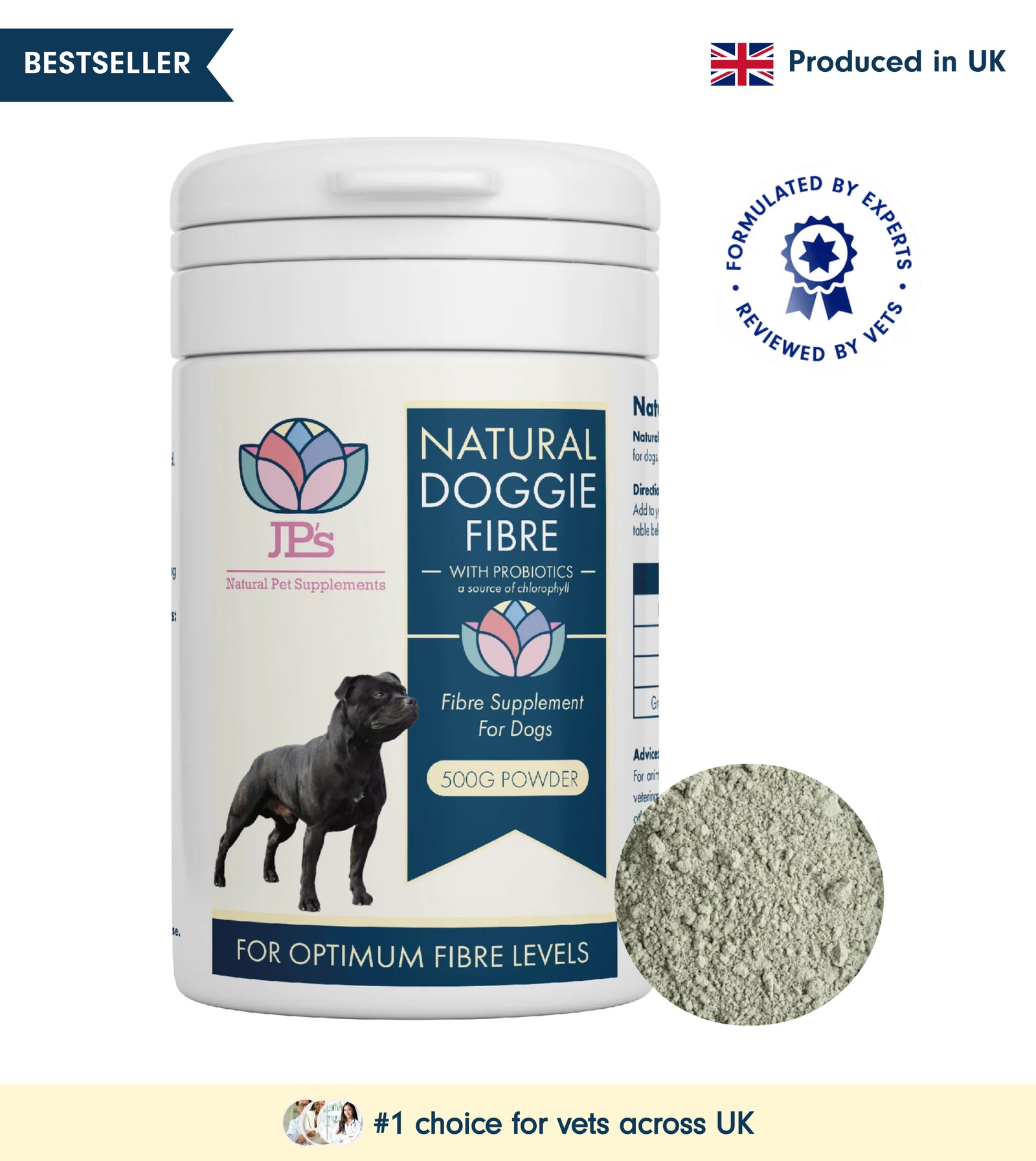
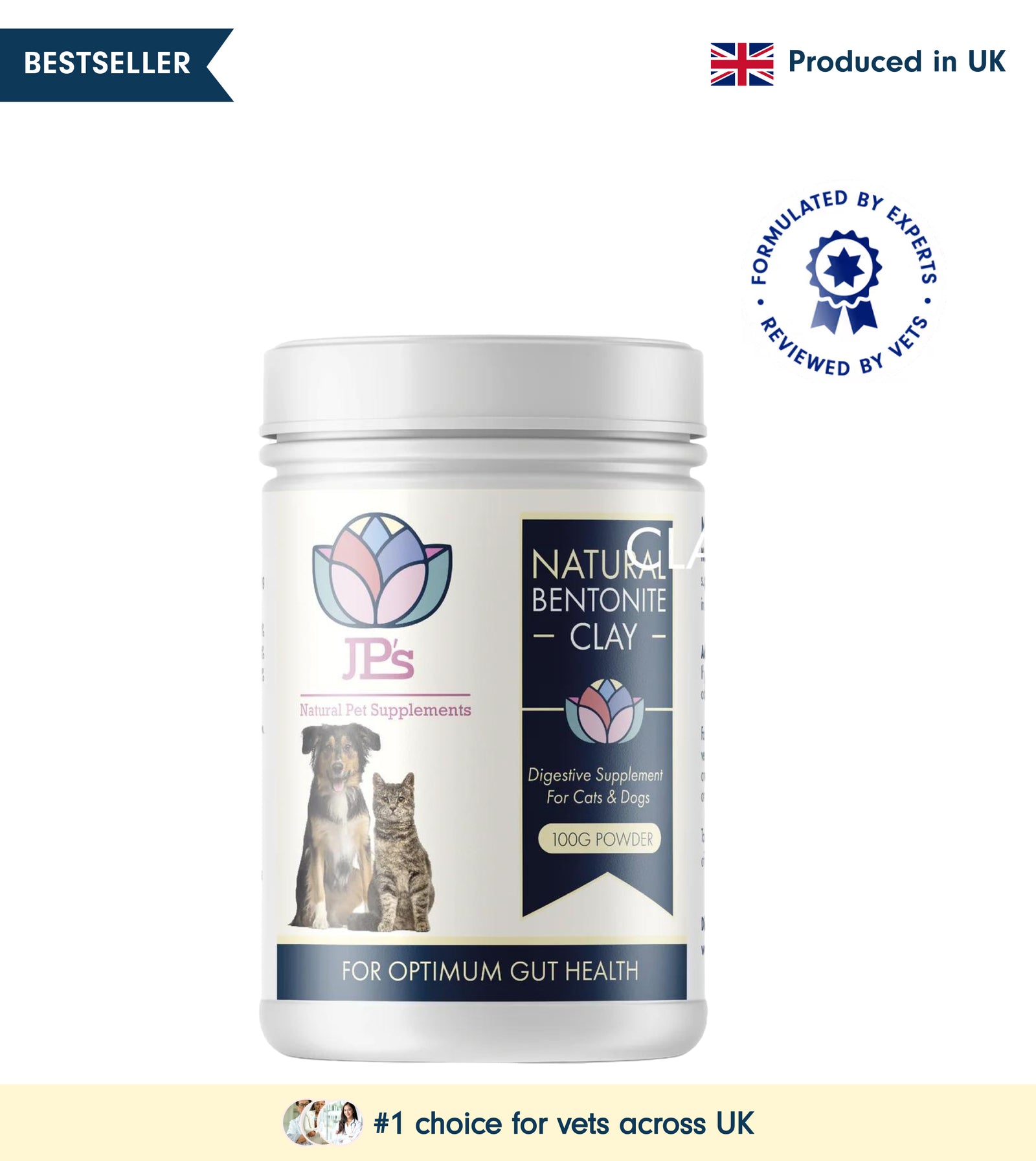
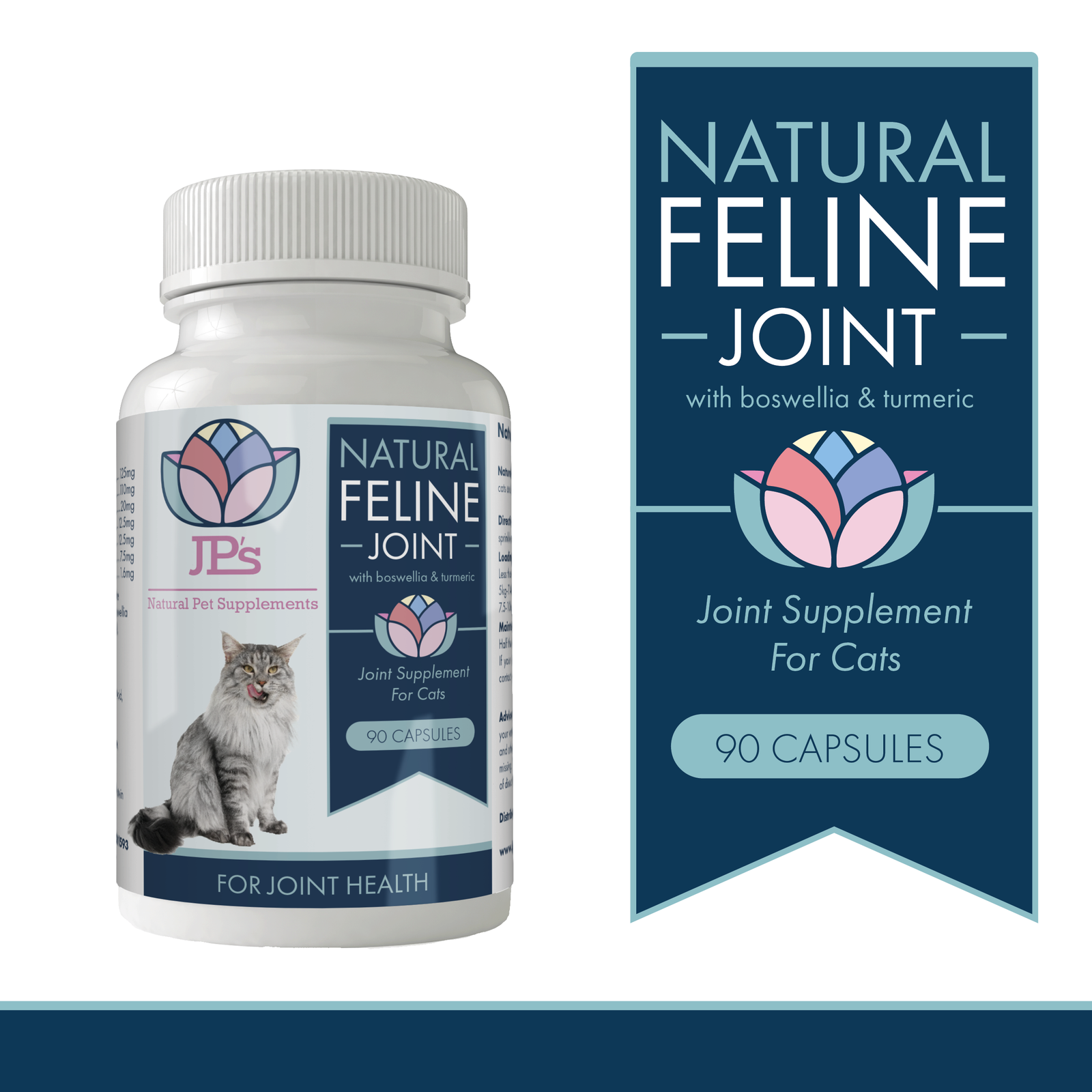
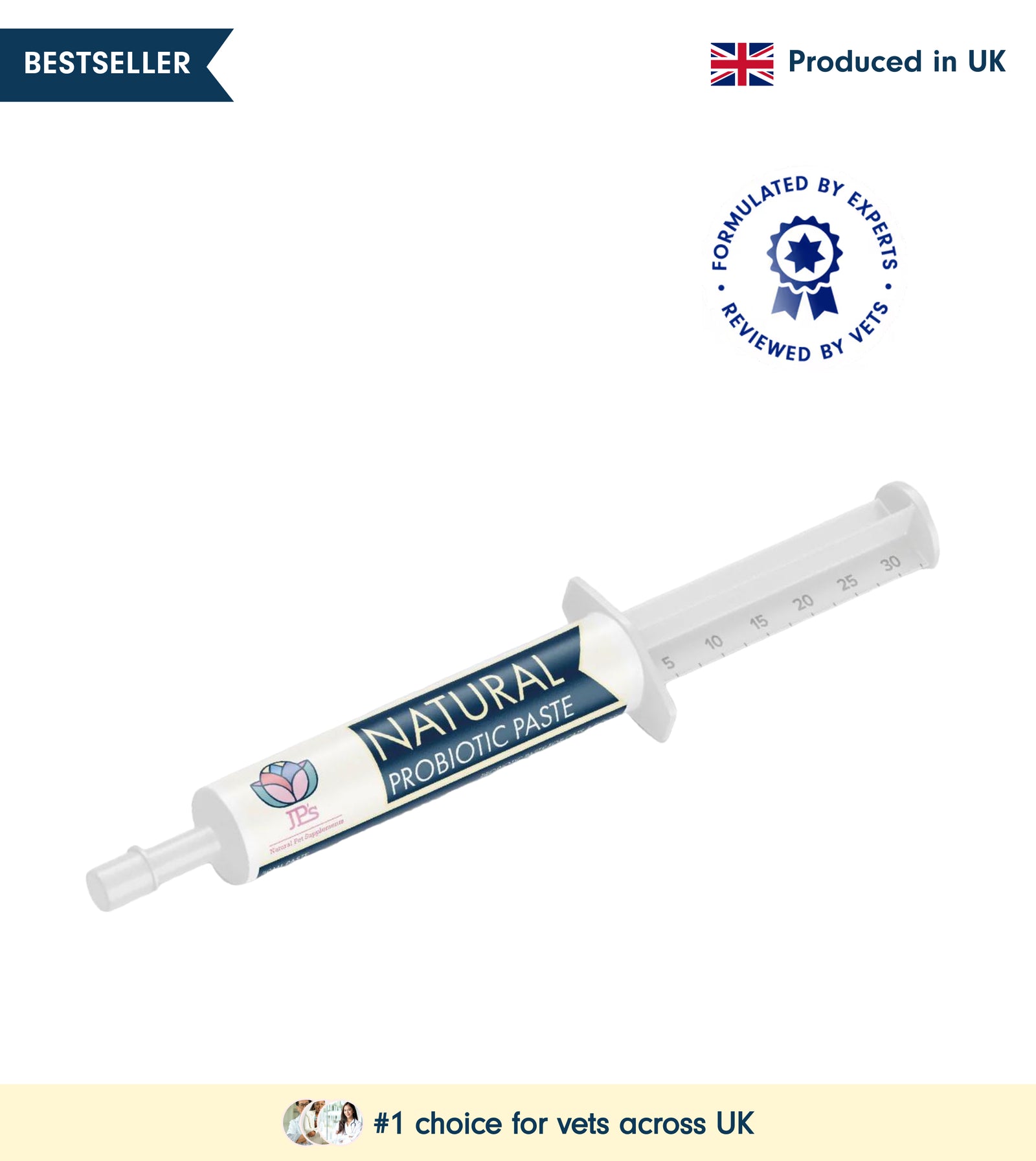
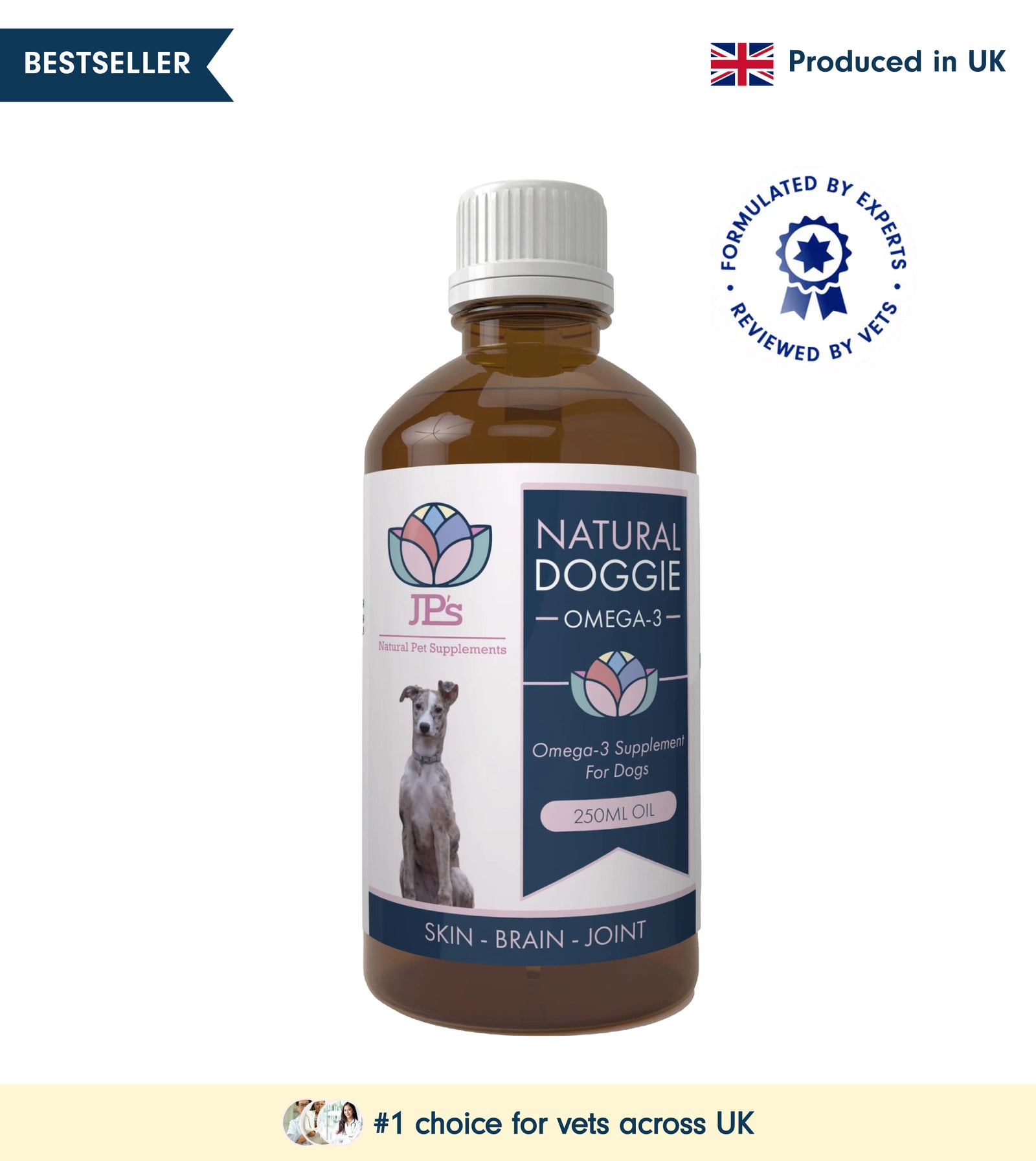
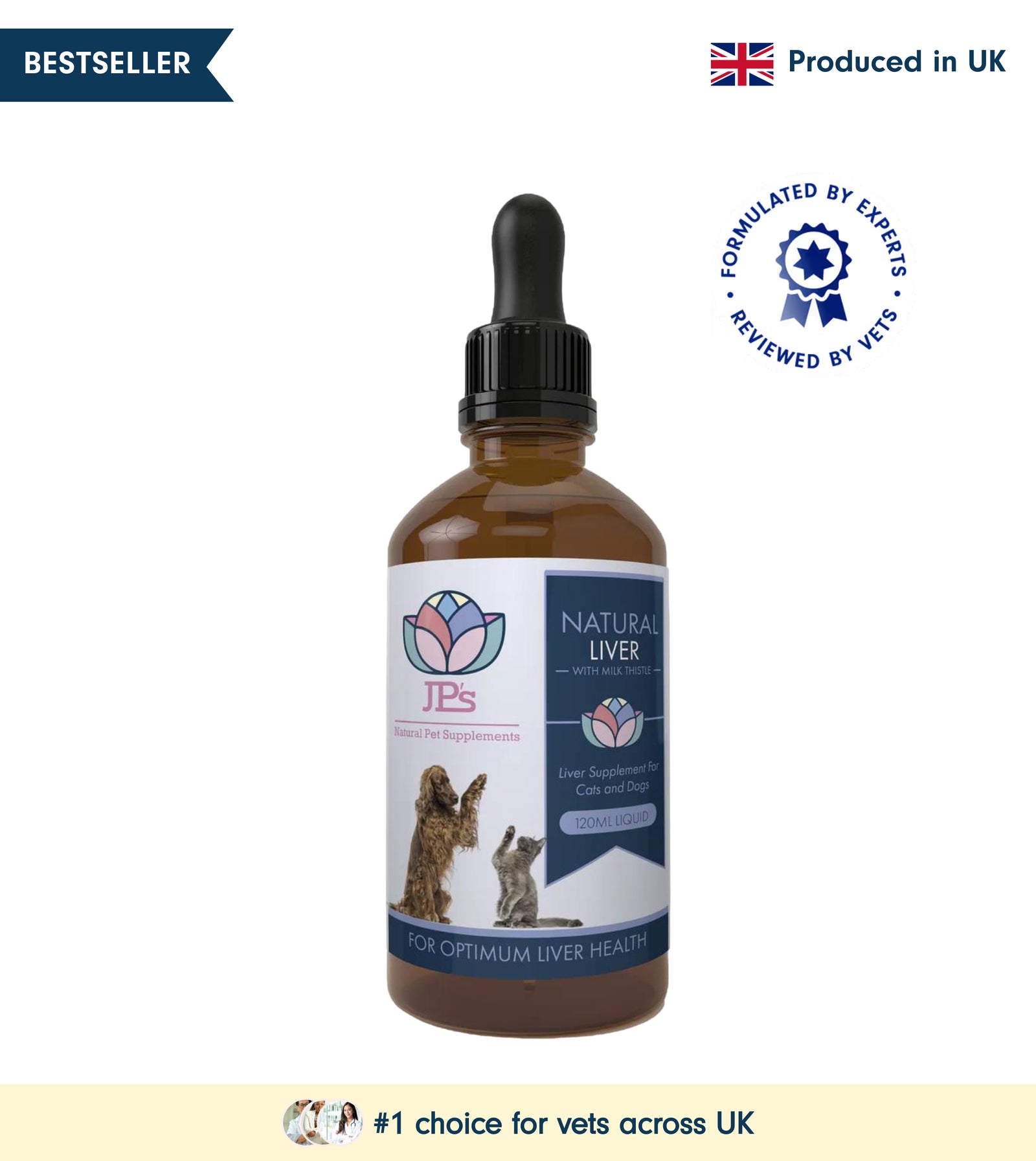
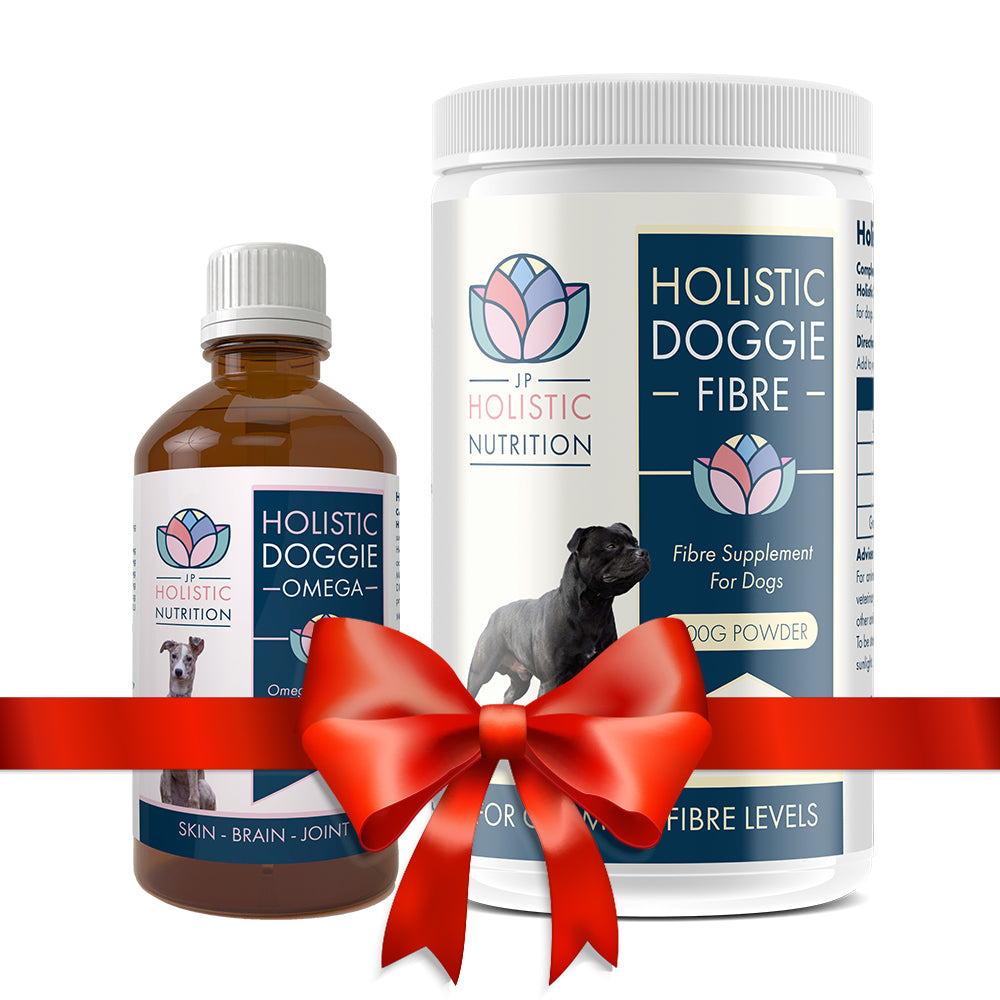
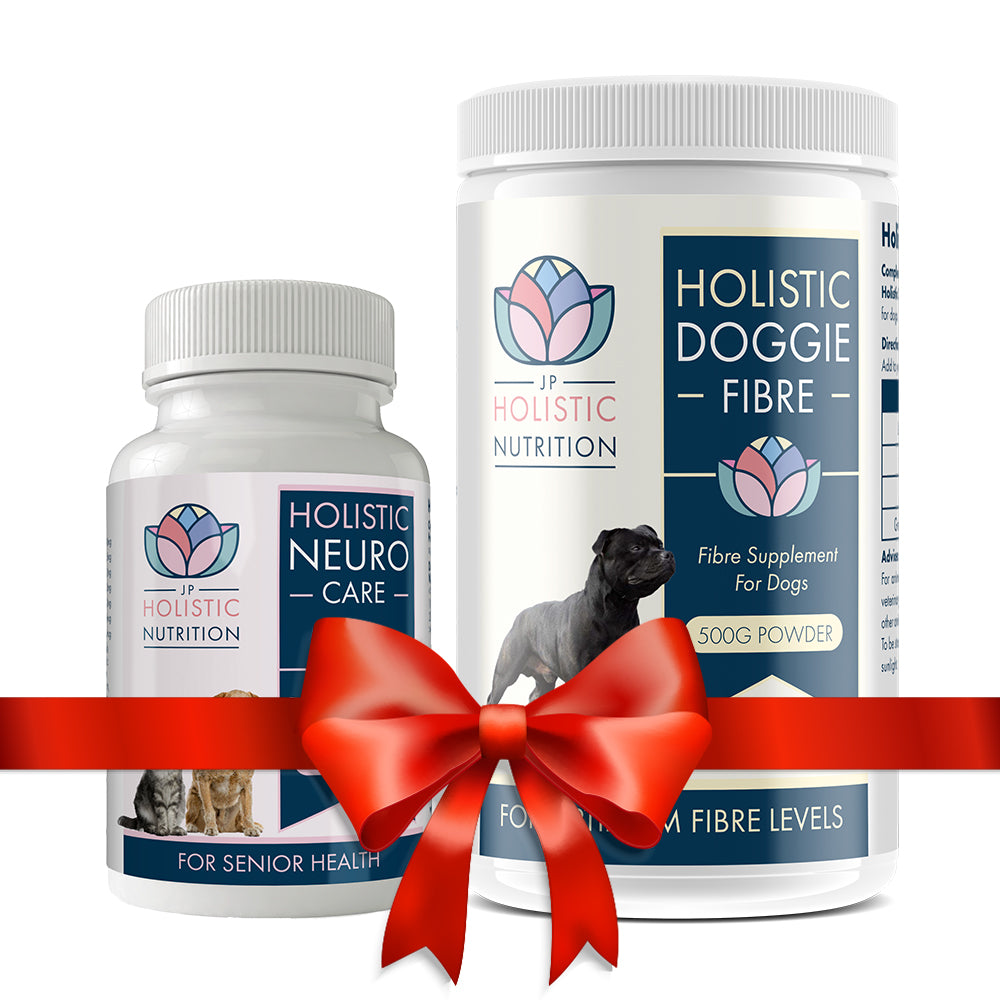
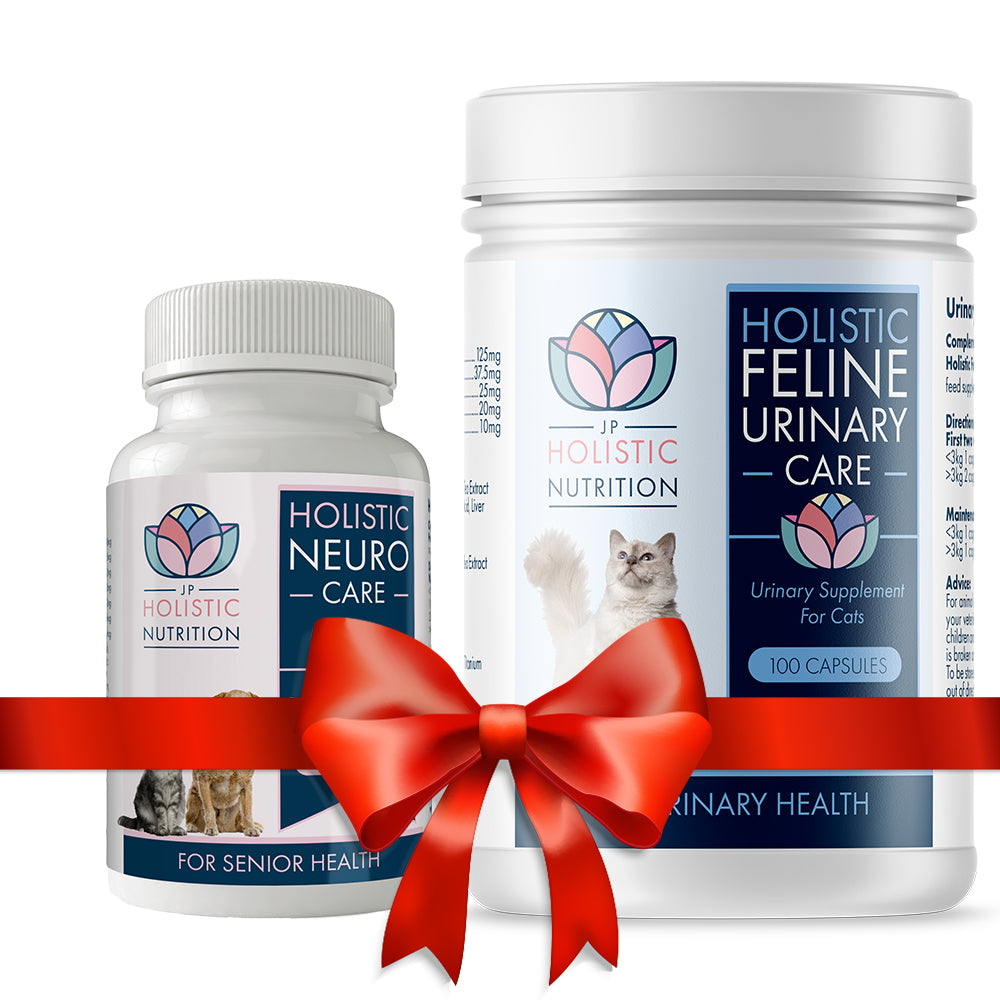
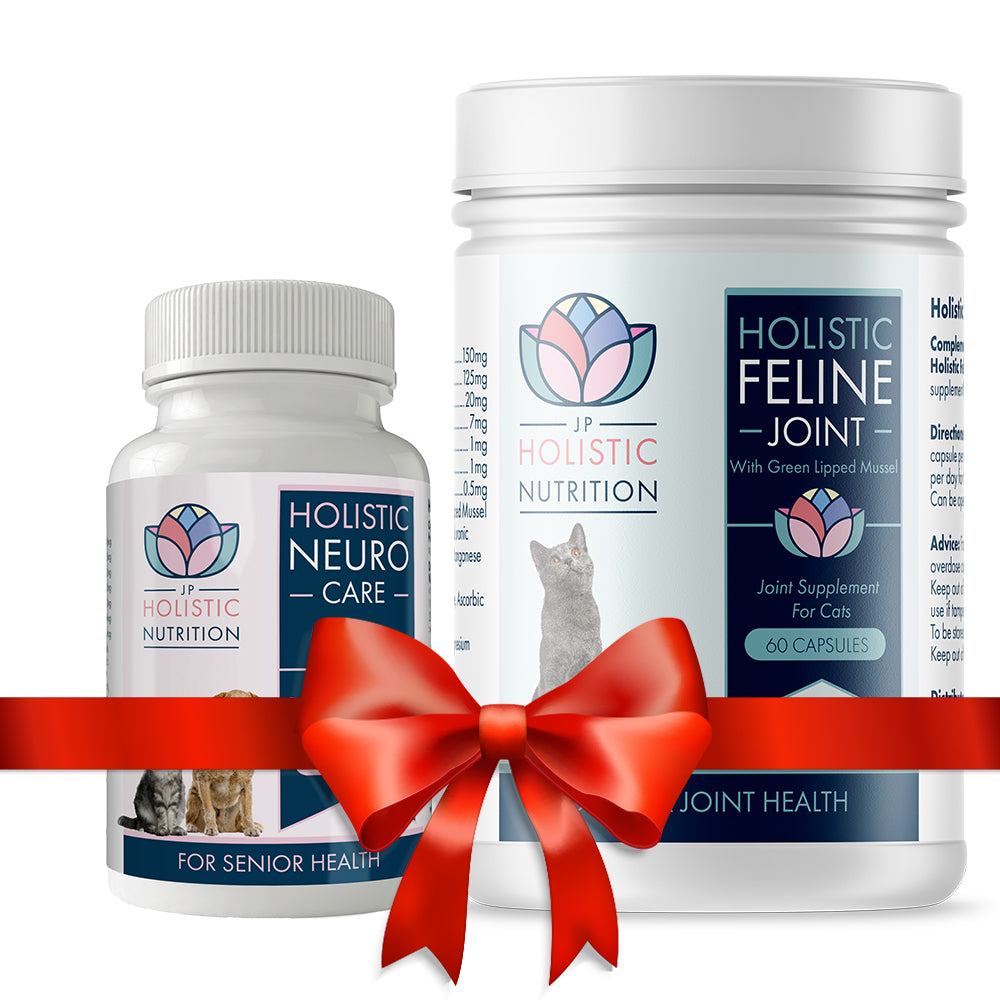







Leave a comment (all fields required)